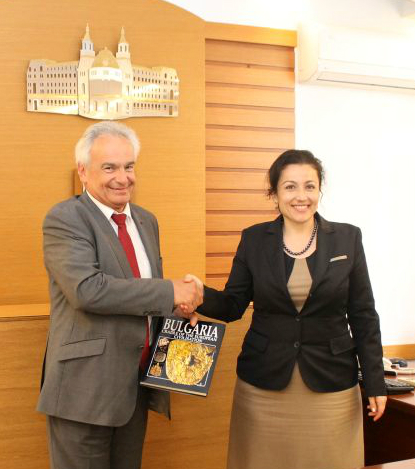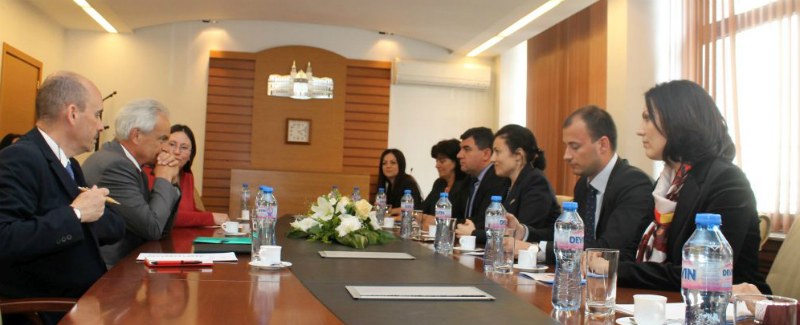
Ms Taneva affirmed the strong support of the Bulgarian government and its Ministry in the organisation of the Congress. The event will showcase the revival of Bulgarian vitiviniculture, which has seen a significant transformation in recent years.

The OIV Director General underlined the unanimous agreement of the OIV Member States to taking Bulgaria up on its invitation, 50 years after the last OIV General Assembly held in Sofia in 1966. Together with Ms Vesselina Evdokimova, Attaché for Agriculture and Food at the Embassy of Bulgaria in Paris, and with Mr Krasimir Koev, Director of the Executive Agency for Vine and Wine, Jean-Marie Aurand participated in working meetings to initiate the first logistical steps and visit the locations that will host the experts and delegates who will be taking part in the 40th OIV Congress.

The Director General praised the strong direct involvement of the Agency and its collaborators, and expressed his conviction that all of the conditions necessary to make this annual summit of the global vitivinicultural sector a success would be met.